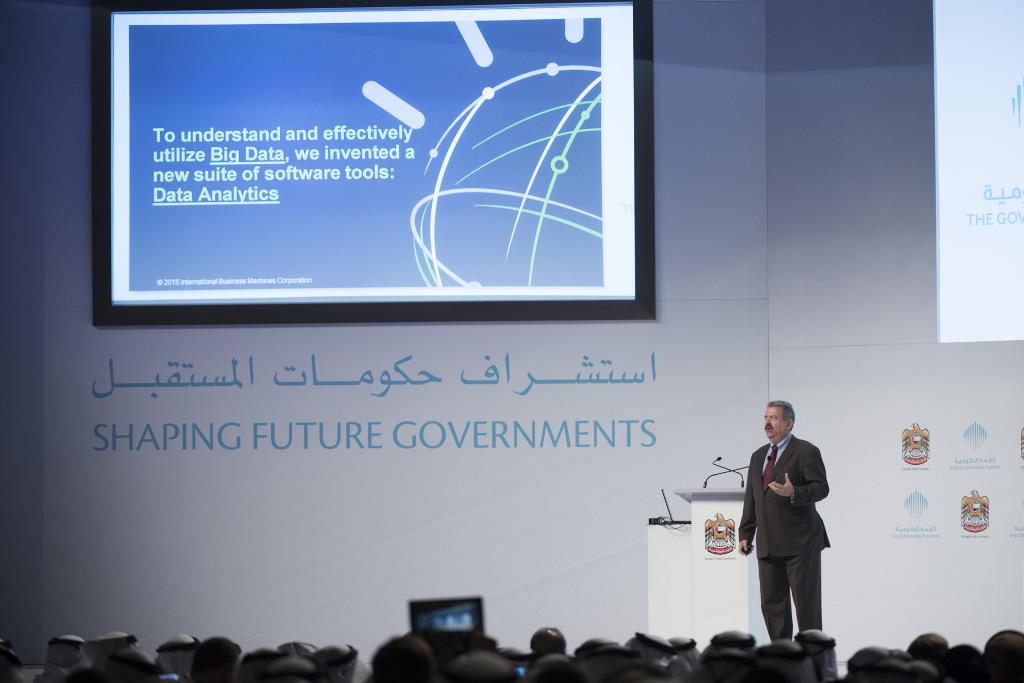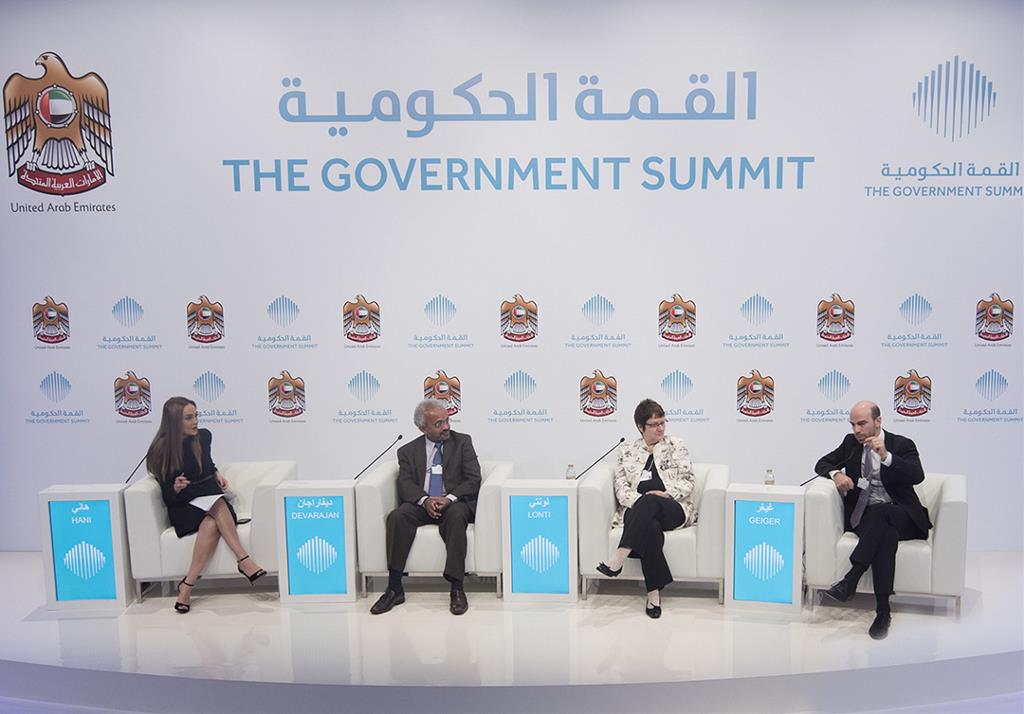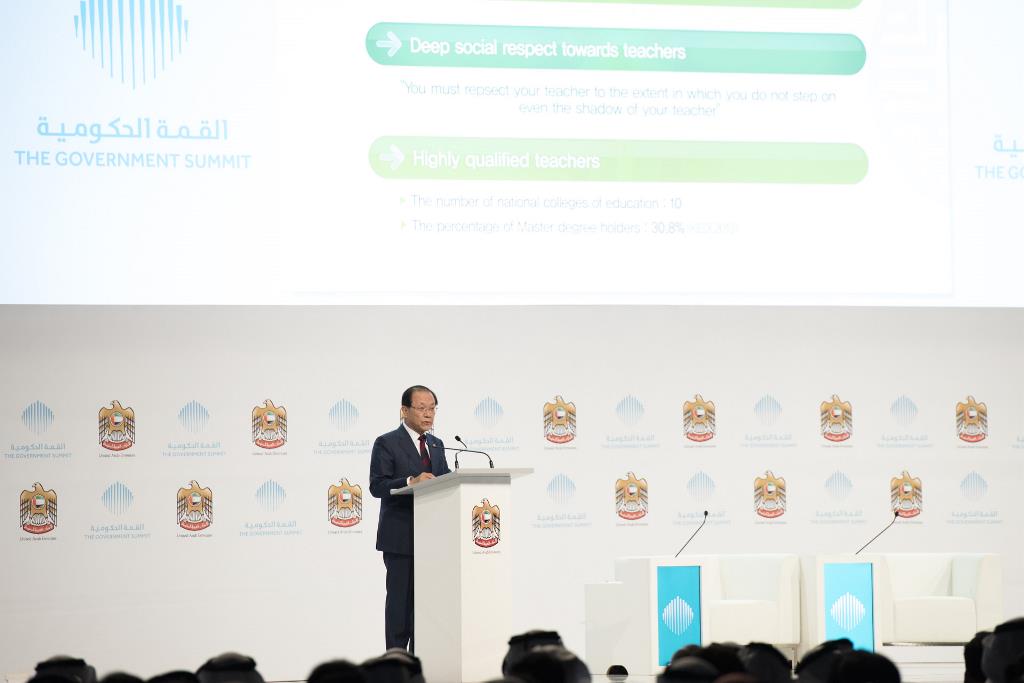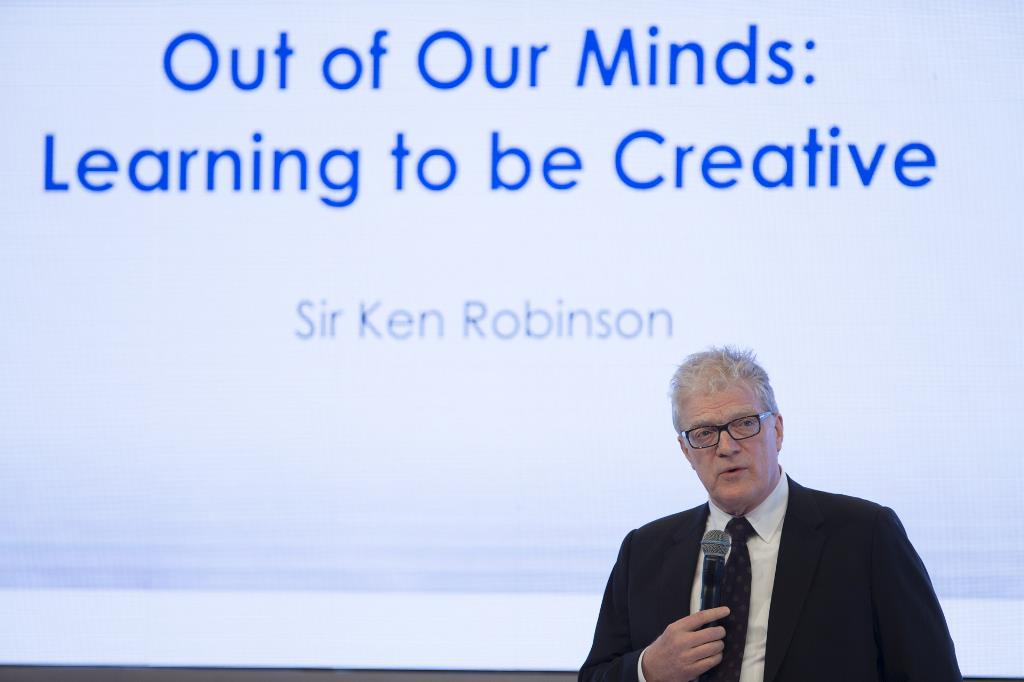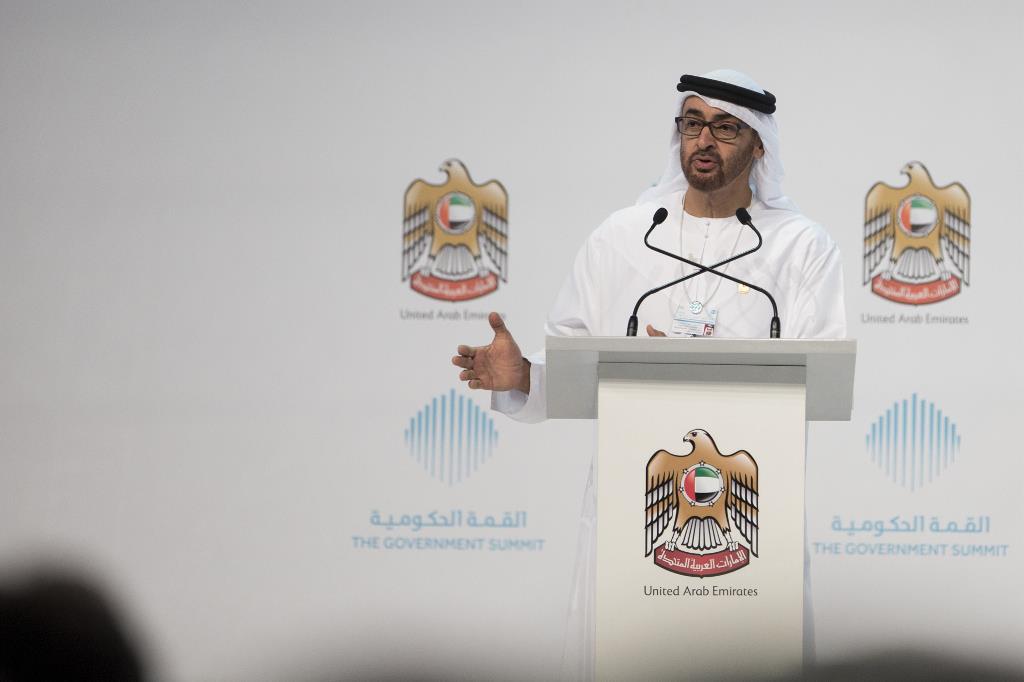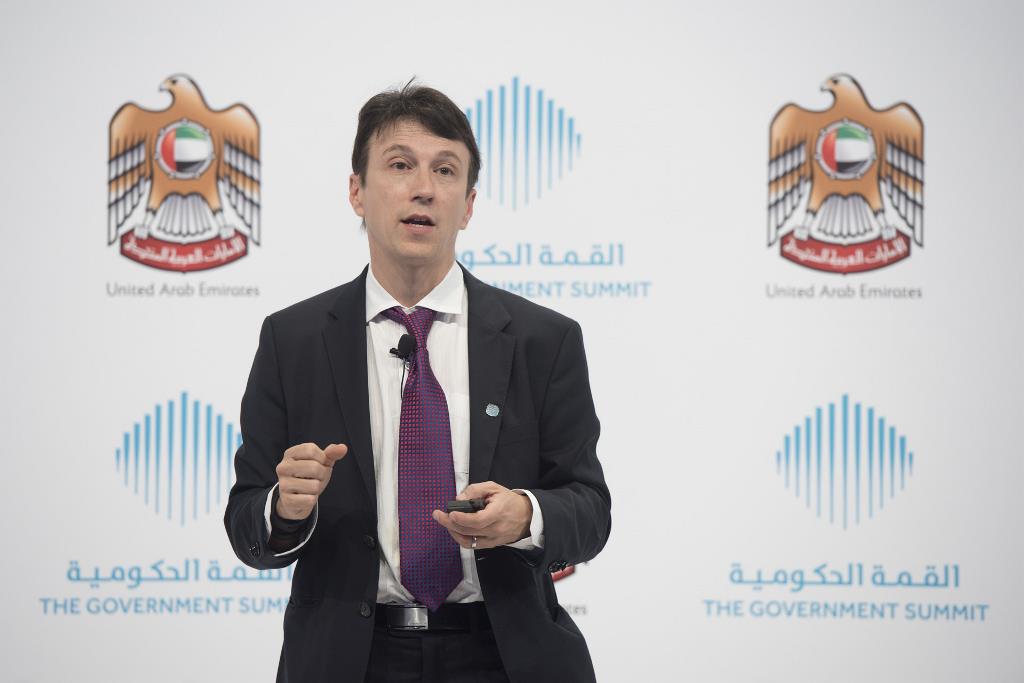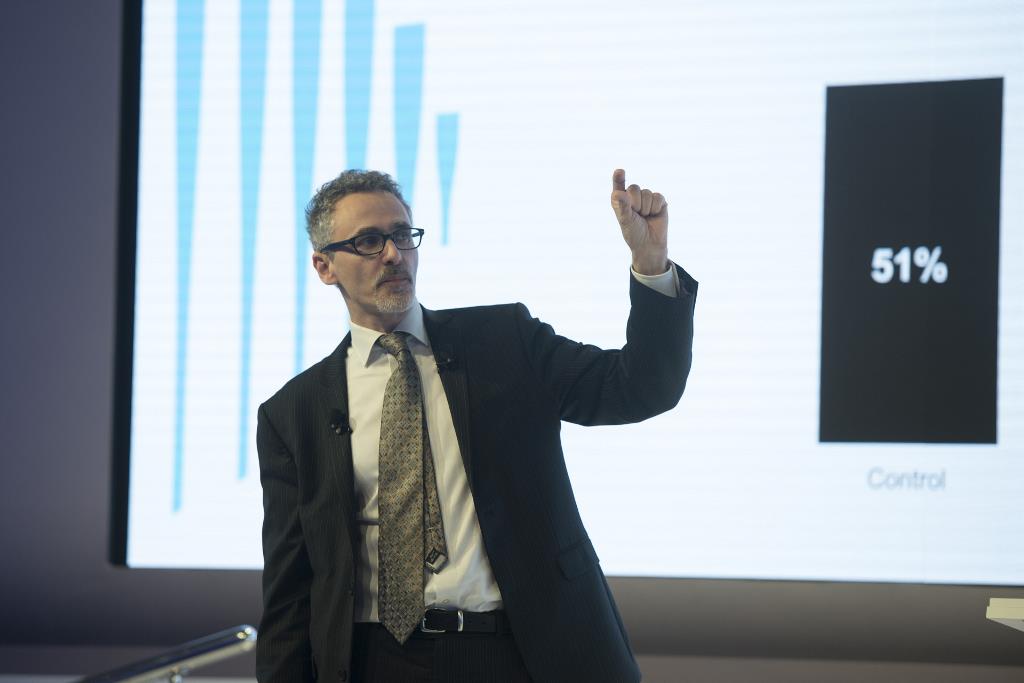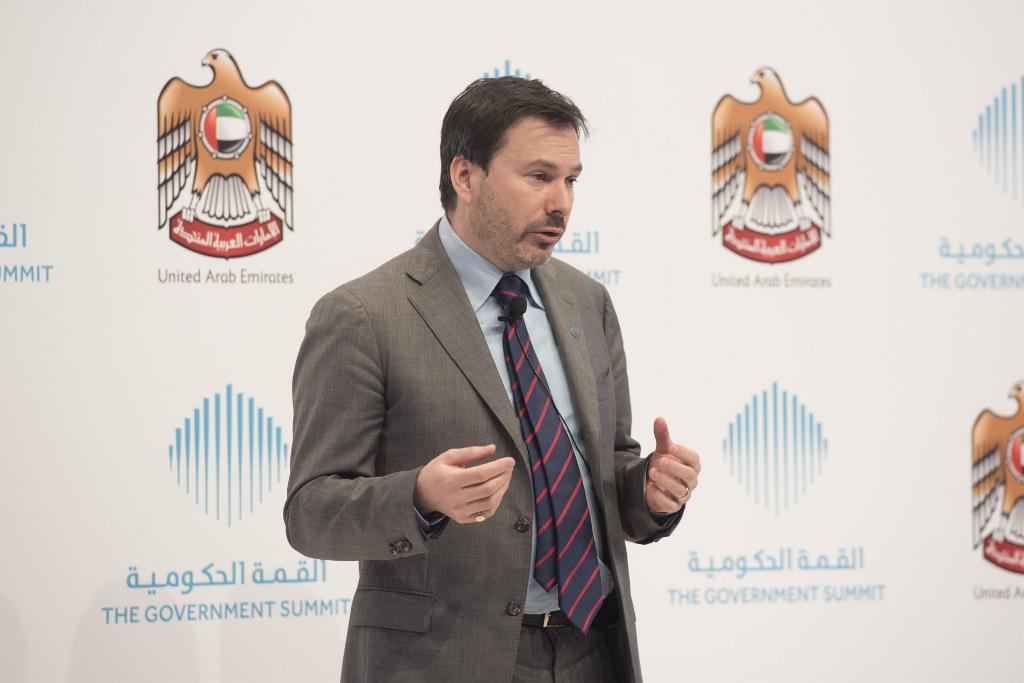Measuring What Really Matters For Governments: Towards Global Indices for Government Services
Measuring people's perceptions is more important than statistical data to help governments implement better policies that will ultimately lead to better public services, three prominent economists from world-leading organizations agreed.
Dr. Zsuzsanna Lonti, Head of Unit, Indicators and Statistics in the Public Governance and Territorial Development Directorate of the Organization for Economic Co-operation and Development (OECD); Dr. Shantayanan Devarajan, World Bank Chief Economist for MENA region; and Thierry Geiger, Senior Economist and Associate Director of Global Benchmarking Network, Global Competitiveness and Risk at the World Economic Forum, made the collective statement during a debate on the subject: ‘Measuring What Really Matters For Governments: Towards Global Indices for Government Services’ at The Government Summit 2015.
According to a Gallup poll in 2014, Dr. Lonti said, about 40% of people in member countries of the OECD don't trust their governments.
"It’s not enough just to ask. You have to dig deeper. Is it because taxes are high or is it because the people are not satisfied with the services they are getting from their governments?" said Dr. Lonti, who also heads OECD's leading publication, Governance at a Glance.
Global indices are traditionally based on collected objective data. But economists now agree subjective data are equally important to achieve goals, especially when it comes to government policies.
"We should not collect only objective data. It is also important to collect subjective data. The perception of people. For example, trust in government. You cannot measure that in objective data, but subjective questions," said Dr. Lonti.
Dr. Shantayanan argued that objective data may sometimes look promising even when people’s satisfaction level is low. The ultimate goal of data compiling is to benefit the people. So unless data can be translated into actions which enhance the quality of life, it is useless, he said.
Dr. Shantayanan said data and feedback from the people can play a vital role in determining the service level, as the government can identify the services needed in each region according to the data extracted from the people there and their views and reactions regarding the different issues, a matter which strengthens the trust of people in their governments. He argued that using polls of limited scale as a tool for gauging indicators may be not enough, as it does not fully reflect reality.
He also said achieving high economic growth rates does not necessarily mean there are excellent government services in place. He gave the example of India, which recently witnessed a decline in the level of service offered in some fields even though GDP growth was maintained.
Geiger said that in this digital age, governments should adopt innovative ways to collect data from constituents, similar to the way private companies measure customer perception. Private companies are using their websites, mobile phones and other platforms to measure customer satisfaction and more. "We realized that today innovation is not just about making big data. Creativity and diversity are huge drivers of innovation," Geiger said.
"Open data is very important. The question is: what are we using it for? Information must be used to make good policies," he said.
The three economists said unlike developed countries, data gathering in developing nations isn't sophisticated, posing a great challenge to come up with the true measure of what's happening in a certain area. Added to that is the developing countries’ limited number of experts in interpreting the data gathered.
"One of the challenges is how to interpret these data. I suggest they hire a data scientist. Crunch the numbers and adopt appropriate policies," Geiger said.

















